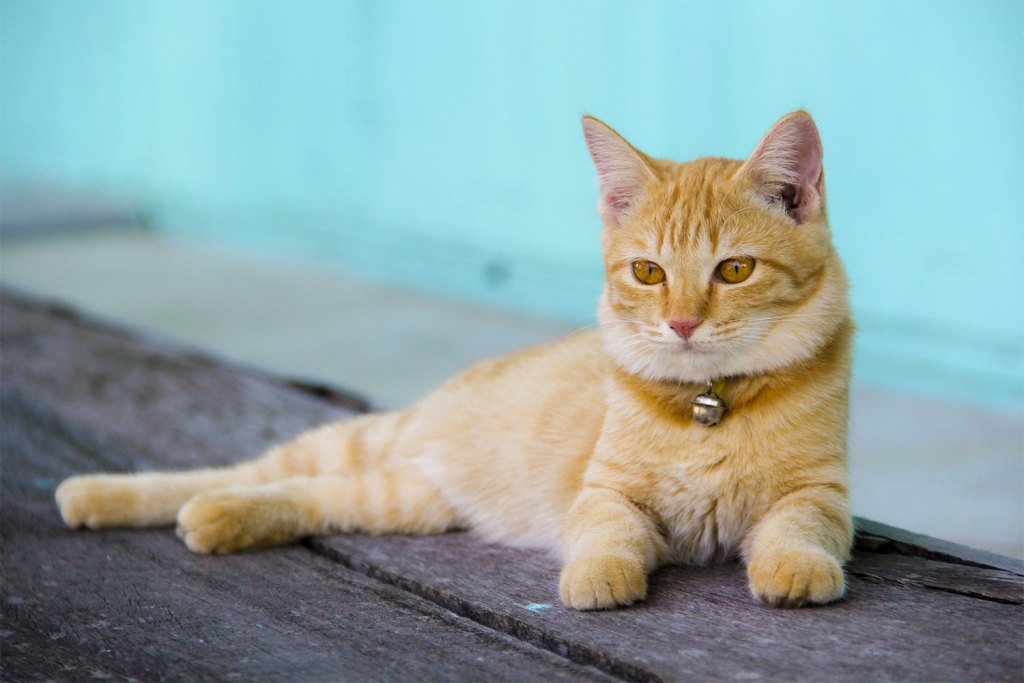There are many types of cat collars – but a lot of feline parents prefer attaching bells to them. This is mostly due to the sneaky behavior of these curious little creatures. So… did the cat sneak up on you again? Did they leave another dead bird on your doorstep? While many people recommend a cat collar bell to put an end to this behavior, others say it can hurt your feline friend’s hearing. While the whole hearing thing is an old wives’ tale, there are other reasons why you may want to think twice about attaching a bell to your cat’s collar. Here’s the truth your cat wishes they could tell you about bells on their collars.
Collar bells and cat hearing
While many well-intended friends may say that bells can damage your cat’s ears, this is not true. Even with long-term usage, experiments show that bells don’t affect your cat’s hearing. Bells have a sound of around 50dB, which is well below your cat’s hearing sensitivity. To give you an idea, your dishwasher has a volume of 80dB and this doesn’t affect your pretty purr baby, either.

Studies also show that cats quickly get used to the sound of a bell around their collar. Just like humans, they have the ability to ignore these sounds after a short time. But, if you’re still unsure, the best course of action is to attach a bell to your cat’s collar. If they seem fine with it, it’s probably because it doesn’t bother them.
Pros of bells
Cat bells offer many benefits to kitty parents. Here are a few:
- Anti-hunting: If your cat’s hunting habits bother you, a bell could serve as a warning sign for possible prey. To put an end to the birds, mice, and lizards that your loving kitten leaves on your doorstep, just attach a bell to their collar. This will let other animals know that your cat is on the prowl and help them escape.
- Cat locator: If you have a cat who likes to hide or pounce, a bell is the solution to help you keep track of your furry friend’s whereabouts. This is especially helpful for cats that run out of the house and are hard to find. They also help avoid stepping on extra-loving kittens who walk between your legs.
- Avoid cat fights: If you have more than one cat at home and one of them likes to pick fights, a bell on their collar lets the other one know that the bully is around. This gives the gentle cat time to escape and also means that you’ll spend less time breaking up fights.
Cons of bells
These are some possible cons of cat collar bells:
- Predator alert: Just like bells alert prey that cats are hunting, they can also let predators know that your kitty is around. While this isn’t 100% certain, it’s always best to keep your cat indoors if being outside is a risk.
- Hazard: If your cat finds the bell annoying, they could try to chew it off. This is a possible hazard, since it could get stuck on their teeth or jaw. Plus, the little ball inside the bell is a choking hazard if your cat is able to get it out.
Alternatives to a collar bell
While bells are considered mostly safe for your feline friend, there are some alternatives for cat parents who are still concerned. Cat bibs are brightly colored devices that alert potential prey before your cat is able to attack. These safe devices can’t get stuck or strangle your cat; but, if you’re still worried, attaching a cat bib to a breakaway collar offers peace of mind.
And although bibs may look odd, they’re proven to be effective and reduce predation by up to 50%. Cat bibs are especially helpful to birds, since they have good color vision. Mammals, on the other hand, can’t see color as well and may still fall prey to your cat.
Cat parents who live in areas with endangered species often worry about their furry friend’s hunting tendencies. If your cat likes to venture outdoors and often brings back tokens of their affection, a bell is a good solution to alert possible prey. Contrary to popular belief, they don’t affect your cat’s hearing and aren’t annoying to your kitten. They’re also helpful solutions to help you locate your sneaky kitty if they like to hide or sneak up on you. With a cat collar bell, you’ll always be able to find Mittens and will do your part to curb their hunting habits.
If you’d like to learn more about your kitten or need a guide on how often should kittens eat, we’ve got you covered.


